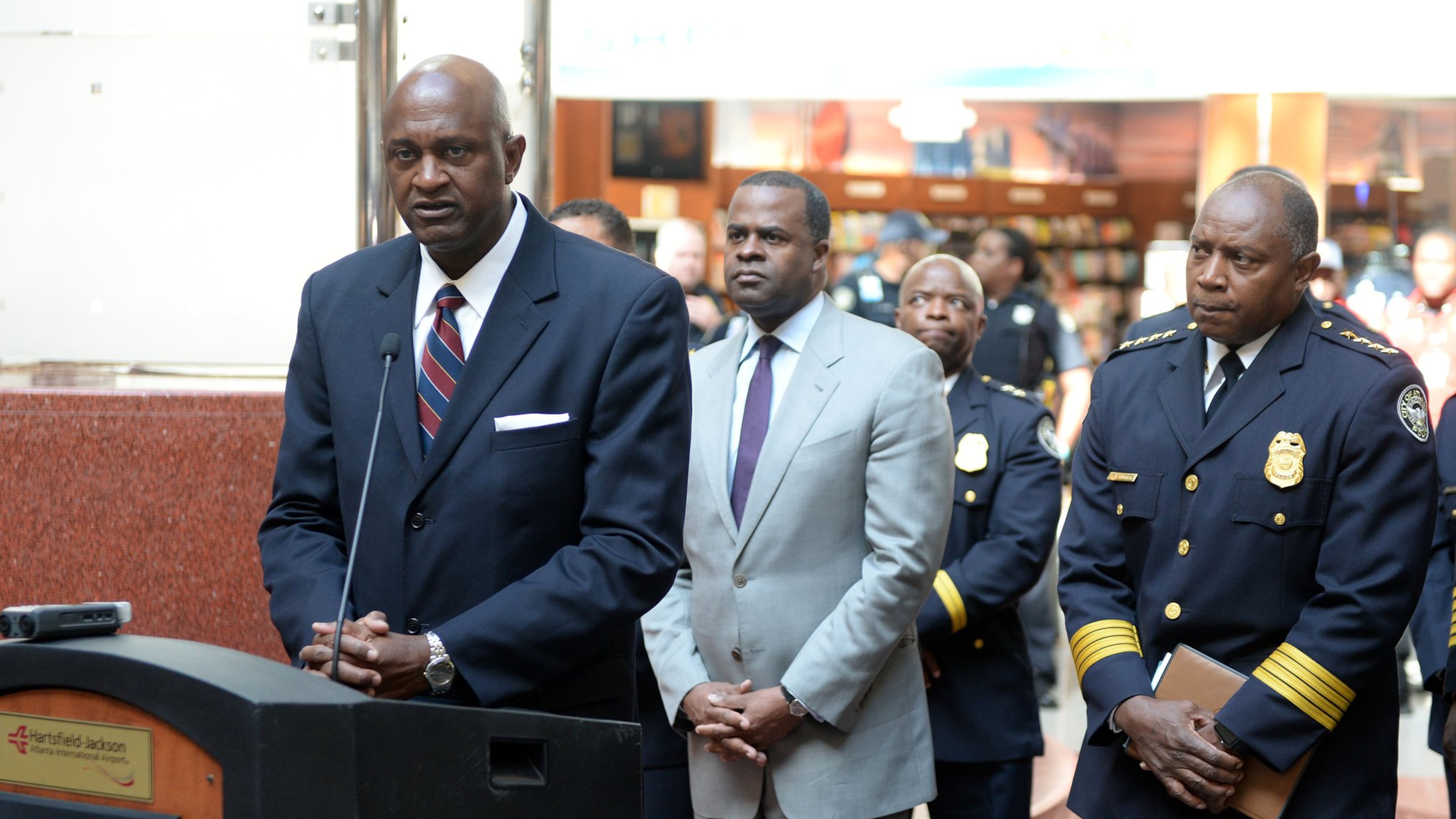Atlanta airport GM post still in interim mode

Five months after the Atlanta airport’s top executive was abruptly dismissed, one of the the region’s biggest economic drivers remains under interim leadership with no search announced for a permanent replacement.
Interim general manager Roosevelt Council, promoted to the role from the position of chief financial officer, has settled into the role and is launching the airport’s $6 billion expansion program.
Atlanta Mayor Kasim Reed, who fired Miguel Southwell from the post in May, has not announced any plans to name a search committee for a new airport manager, but has also declined to officially name Council as permanent general manager.
“Everything that I’ve been following at Hartsfield-Jackson is running really well and I feel good about where we are right now,” Reed said recently.
Reed and Southwell have agreed to dismiss legal threats lobbed against each other shortly after the latter’s ouster, which came amid a flurry of negative publicity surrounding long security lines as the summer travel season approached.
Industry observers have said it may be difficult for Reed in the last year and a half of his term to find a new airport manager from outside, given the political uncertainty of who that manager’s new boss would be and whether a new mayor would want to appoint his or her own pick. Also, Reed has been disinclined to strike employment contracts with his hires, emphasizing that they serve at his pleasure.
Hartsfield-Jackson, run as the aviation department of the City of Atlanta, is arguably the part of the city’s operations with the highest profile nationally and internationally. Operations, delays and cancellations at the Atlanta airport — the world’s busiest and home of the world’s largest airline hub — can affect flights and passengers all over the country and all over the world.
Connecting to another flight on a Hartsfield-Jackson concourse is often the main point of contact with Atlanta for many people from across the nation and the world.
The general manager post requires working closely with federal agencies including the Transportation Security Administration and the Federal Aviation Administration, tackling the challenges of maintaining consistently safe and secure operations to avoid global catastrophe, and handling the politically-charged world of airport contracting.
That makes the position a crucial pick for any Atlanta mayor.
“This is a giant airport; it is a very important asset of the city of Atlanta,” said Audrey Haynes, a University of Georgia political science professor.
Tightening market
Meanwhile, the market for airport managers tightens as a wave of industry veterans reach retirement age.
“It’s a small industry of those airports like Atlanta that are considered large hub airports,” said Linda Frankl, vice president of ADK Executive Search and a former airport senior manager. “It is a very selective and specialized industry.”
She said an airport manager in an interim role is sometimes “cautious to make long-term decisions,” but knowing how long the interim role will last can help to determine what decisions can be postponed for someone in a permanent position to make.
Still, “we’ve seen individuals in an interim role for six months, 18 months, and even at large airports,” Frankl said.
Some who do business with the airport have been dealing with the series of people in the airport manager position during Reed’s tenure.
Longtime airport manager Ben DeCosta led Hartsfield-Jackson for 12 years. Shortly after Reed stepped into office, DeCosta’s departure was announced. Robert Kennedy became interim manager of the airport, followed by Louis Miller recruited from Tampa in 2010. When Miller retired after 2013, he was replaced by Southwell, first as an interim manager, before he was officially named to the role in 2014.
“When there’s frequent turnover at the airport… you tend to lose the consistency, and you tend to lose all the momentum or discussions or progress that we make over different meetings over a time period,” said Greene Classic Limousines president Jeff Greene, who had been in discussions with airport management as the airport and city weighed the legalization and regulation of Uber and Lyft.
“Atlanta’s got to do something,” Greene said. “It can’t be in limbo.”



